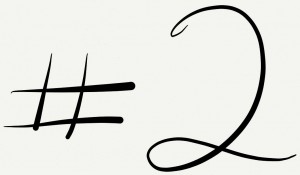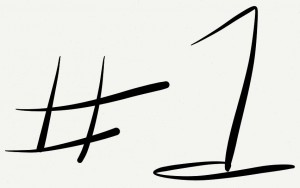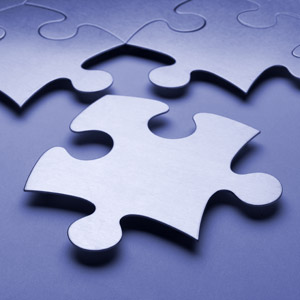Rule #3: The Feeling of Love Follows Loving Action
https://savethemarriage.com/stmblog/wp-content/themes/corpus/images/empty/thumbnail.jpg 150 150 Lee H. Baucom, Ph.D. Lee H. Baucom, Ph.D. https://secure.gravatar.com/avatar/669b7e375d93f77521ddaba08adb8063?s=96&d=blank&r=pgTwo people meet, fall in love, and feel the pitter-patter of their heartbeats forever. They always have that love-sick look in their eyes, even when they are apart. That is proof that they are the right people for each other.
Or at least Hollywood would have us believe it!
And that one myth is more destructive than almost any other about love and marriage in our culture.
Myth. That doesn’t mean false. Just that it does not represent fact.
Here is the truth: the feeling of love, of being “in love” ebbs and flows through the course of a marriage lifetime. Sometimes, the feeling is overwhelming. Other times, it is, well, underwhelming. Sometimes it is entirely absent.
That does NOT mean the wrong two people got together. It does NOT mean the marriage is doomed for failure. It does NOT mean there is no future path.
Think about that term, “madly in love.” Madness is the same as crazy. And those endorphin/hormonal/emotional rushes that come at the beginning of any relationship really is just that: craziness. In fact, fMRI scans, showing the brain activity, would show the same overactiveness in the brain of an infatuated couple as is seen in those that are insane.
Thank goodness that state equilizes and normalizes! Otherwise, little would be done in this world by couples. The single-mindedness of that early stage preempts much useful from happening.
Which is point 1 — that feeling of “crazy in love” is not sustainable.
But point 2 is that doesn’t mean romance of a relationship is gone forever. Only that there is a shift underway which is widely misunderstood. And when something is misunderstood, we usually mess things up by taking wrong actions.
So, point 3 is that the feeling of being in love is not dependent of acting in loving ways. In fact, that is part of what creates the feeling. Not the other way around. We do not act in loving ways because we are “in love.” We are “in love” because we act in loving ways.
Think about it for a moment: isn’t that what happened in the beginning? You feel some pull toward someone else. You are attracted to them, “infatuated,” you might say. So, you do loving things. The other person is feeling the same way, and is acting in loving ways. And there is a back-and-forth interplay of receiving the love, and then acting lovingly.
As that builds, infatuation fuels the love from not only being attracted to someone but getting to know them.
Here is where the story can go in one of two ways.
First, the road that destroys a relationship. Life begins to creep in. Perhaps those little idiosyncracies begin to drive you a bit crazy. Perhaps the schedule doesn’t prioritize the relationship.
At some point, one — and then both, stop acting in loving ways. They are wanting the love to be shown toward them, but don’t take the time to show it back.
The built-up warm feelings begin to cool. The reserve is tapped out.
Then, one or both begin to feel unloved. Feel unloved, and without making a conscious decision to do otherwise, you will stop acting lovingly.
The exact process that led you to fall “in love” is mirrored in the process to feeling disconnection and disdain. The road up is mirrored by the road down.
Road two is a bit different. The couple realizes that to maintain a connection, they must prioritize around maintaining the connection. In order to feel loved, one must be loving.
And most important, there is a realization that the feeling of being “in love” is always (not sometimes, but ALWAYS) fueled by acting lovingly.
As has been said before, “love” is a verb. “I love someone” is really “I will act lovingly toward someone.”
So why do 50% of the married population follow road 1? I have come to believe that much of the reason is lack of understanding. We have been raised on a constant diet of the romantic feeling of love. We have not taken in the “feel love as a by-product of acting in loving ways.”
When the feeling is missing, we make the natural assumption that something is wrong. We believe we must have either done something wrong or have the wrong person.
Let me pause just for a moment and tell you that there are times when the wrong two people do get together. Sometimes, there are some very deep and clear moral divisions. For example, one believes that an open marriage is fine, while the other believes in monogamy. Or one person believes that criminal activity is acceptable, but the other believes in truth and honesty.
But too often, two people with too much in common and lots of shared history, one day realize they do not feel “in love,” and begin to believe that they have made the wrong decision.
And they take apart what could be a wonderful, loving marriage. Mostly because they simply misunderstand what it takes.
Back to our two paths. Let’s assume that the couple from road 2 keeps on keeping their relationship as a priority. They treat each other with respect, and act lovingly. They can continue on that path for a lifetime together.
But more likely for you being on this site, you are not on road 2, but on the first road. This road is full of people stuck, people feeling hurt, rejected, and hopeless. Couples on this road move to less helpful and more destructive patterns.
The more unloved we feel, the less loving we become, left to our own devices. Spin that through a couple of cycles, and the relationship can feel hopeless, the couple helpless to stop the process.
But here is the amazing thing: you can CHOOSE to act lovingly at any moment in time. You can make a conscious decision to stop acting in “less than loving,” if not downright destructive ways, at any time.
In his book, Success Principles, Jack Canfield makes the observation that there is a great equation that can help us all: E + R = O
The equation says that Event + Response = Outcome. We often forget the R, our response. Society often makes us feel that Event = Outcome. When something happens to us, it creates the outcome.
What Jack is telling us is this: we ALWAYS have a choice in how we will respond to any Event. Fact is, there is always a response. Sometimes we pretend that there is no other possible response. But there is.
One of my favorite authors, Victor Frankl, states that “Everything can be taken from a man or a woman but one thing: the last of human freedoms to choose one’s attitude in any given set of circumstances, to choose one’s own way.” He continues that “Between stimulus and response there is a space. In that space is our power to choose our response. In our response lies our growth and our freedom.”
Powerful words from a man that survived the worst that a Nazi concentration camp could throw at him.
How much less to choose to act lovingly toward our spouse, regardless of what comes our way — regardless of how our spouse chooses to treat us.
Remember, your spouse is acting in a way that reflects what he/she believes is true about YOUR actions. What if both of you are acting in “less-than-loving” ways, justifying it because of the lack of love on the part of your spouse?
That feeling of love becomes strangled by the lack of acting lovingly.
So now it becomes a choice. You can ALWAYS choose to act lovingly. Make that choice, starting NOW!
Are you ready to take action — positive action? CLICK HERE to learn a step-by-step guide to rebuilding your marriage.


